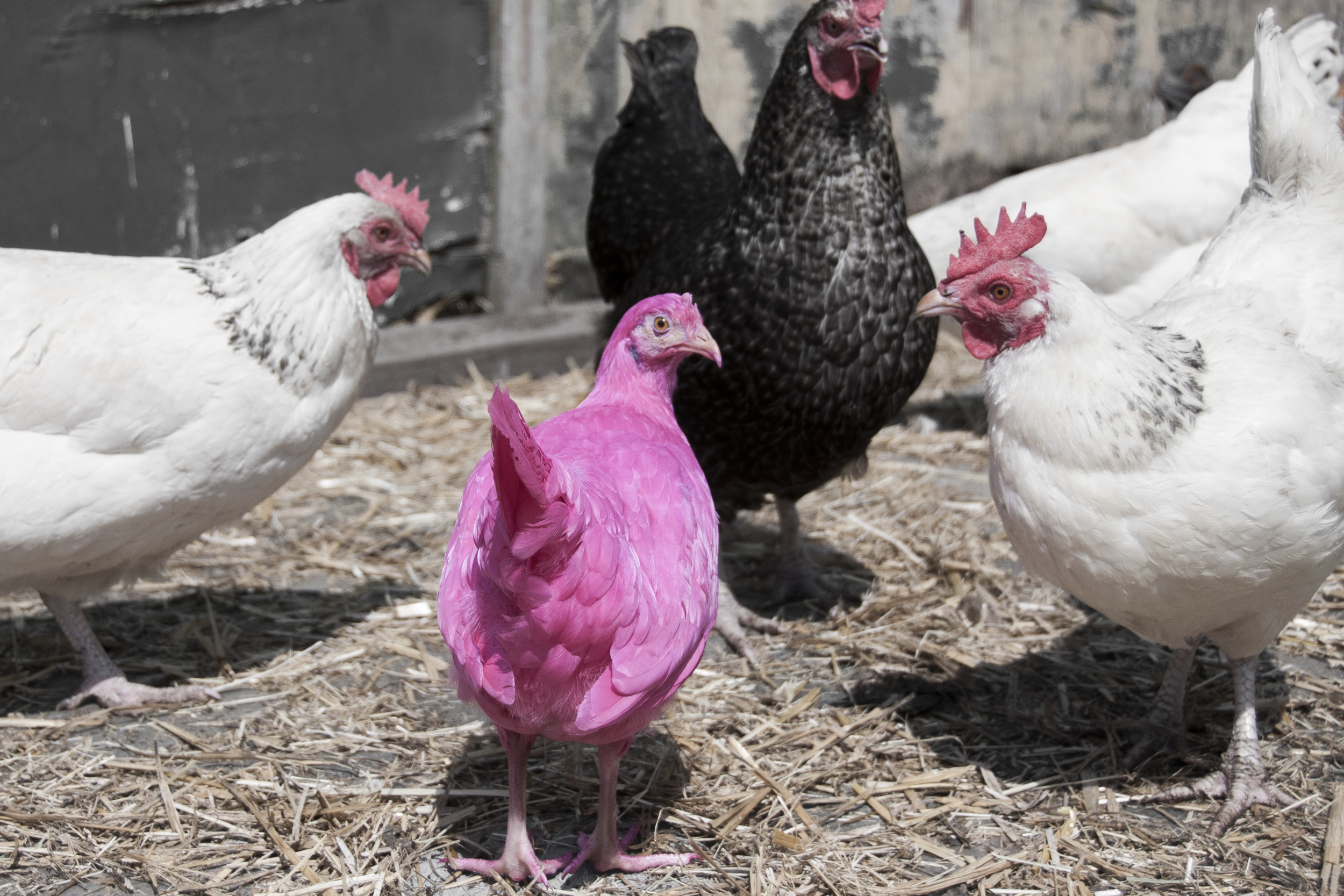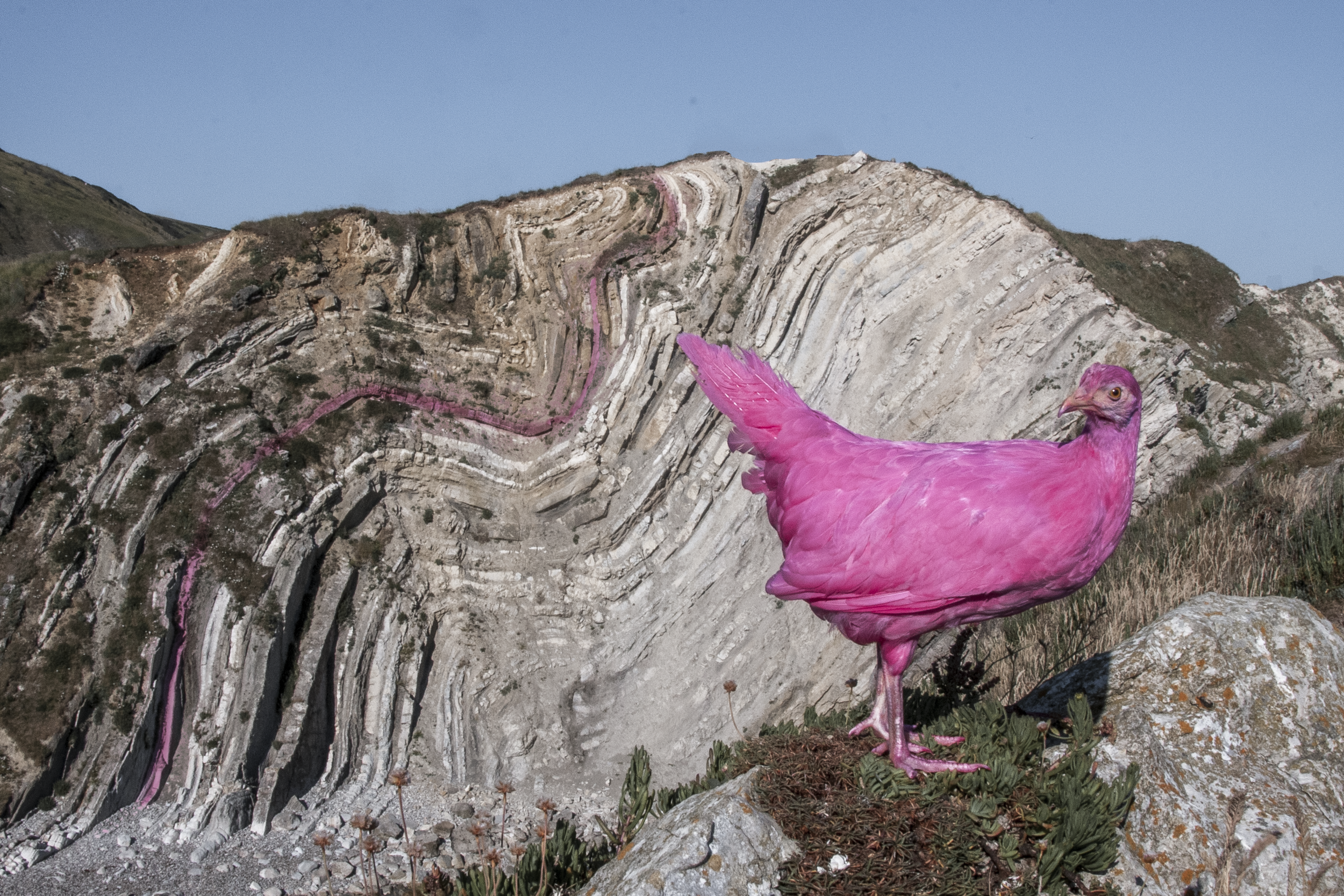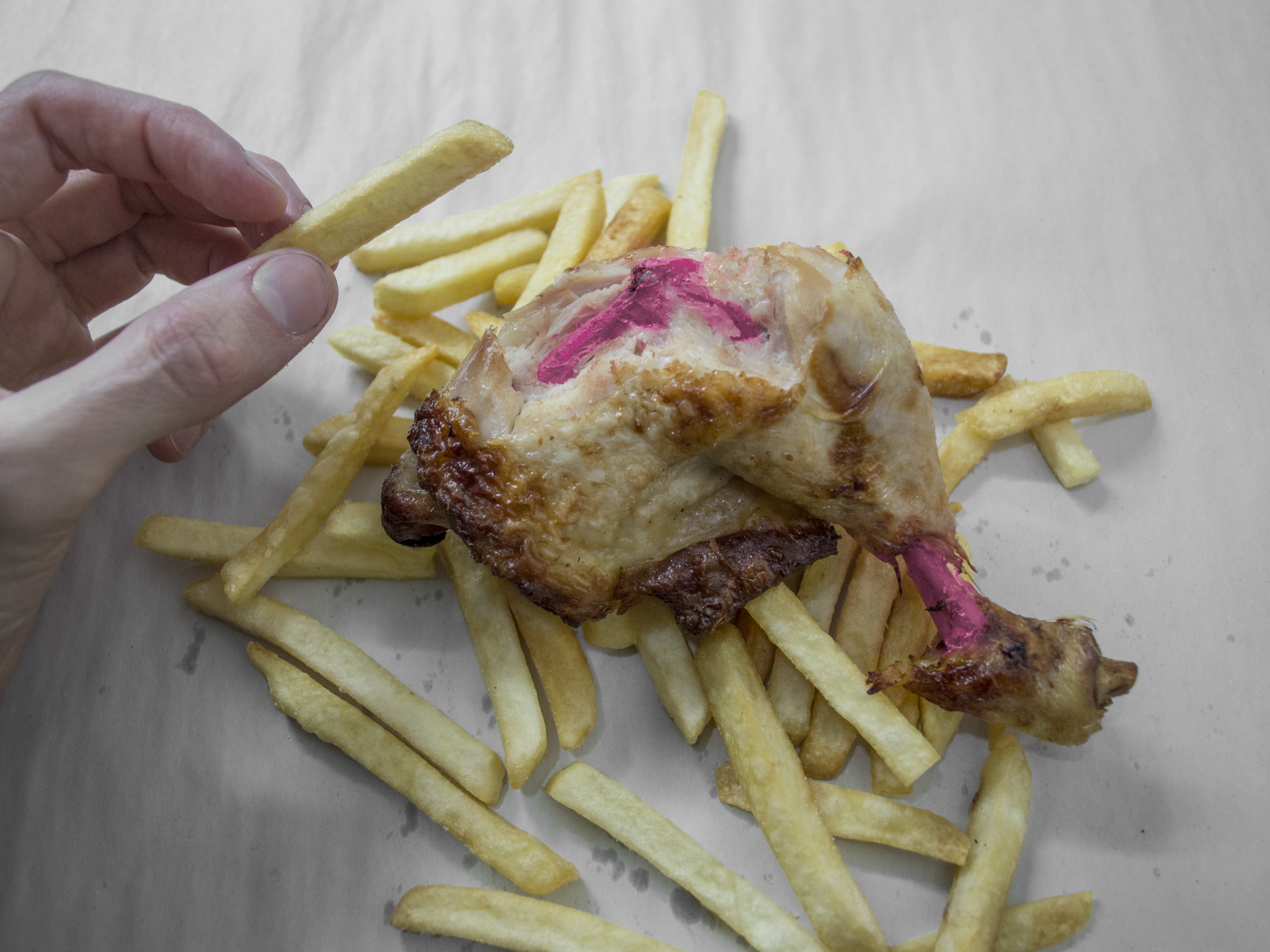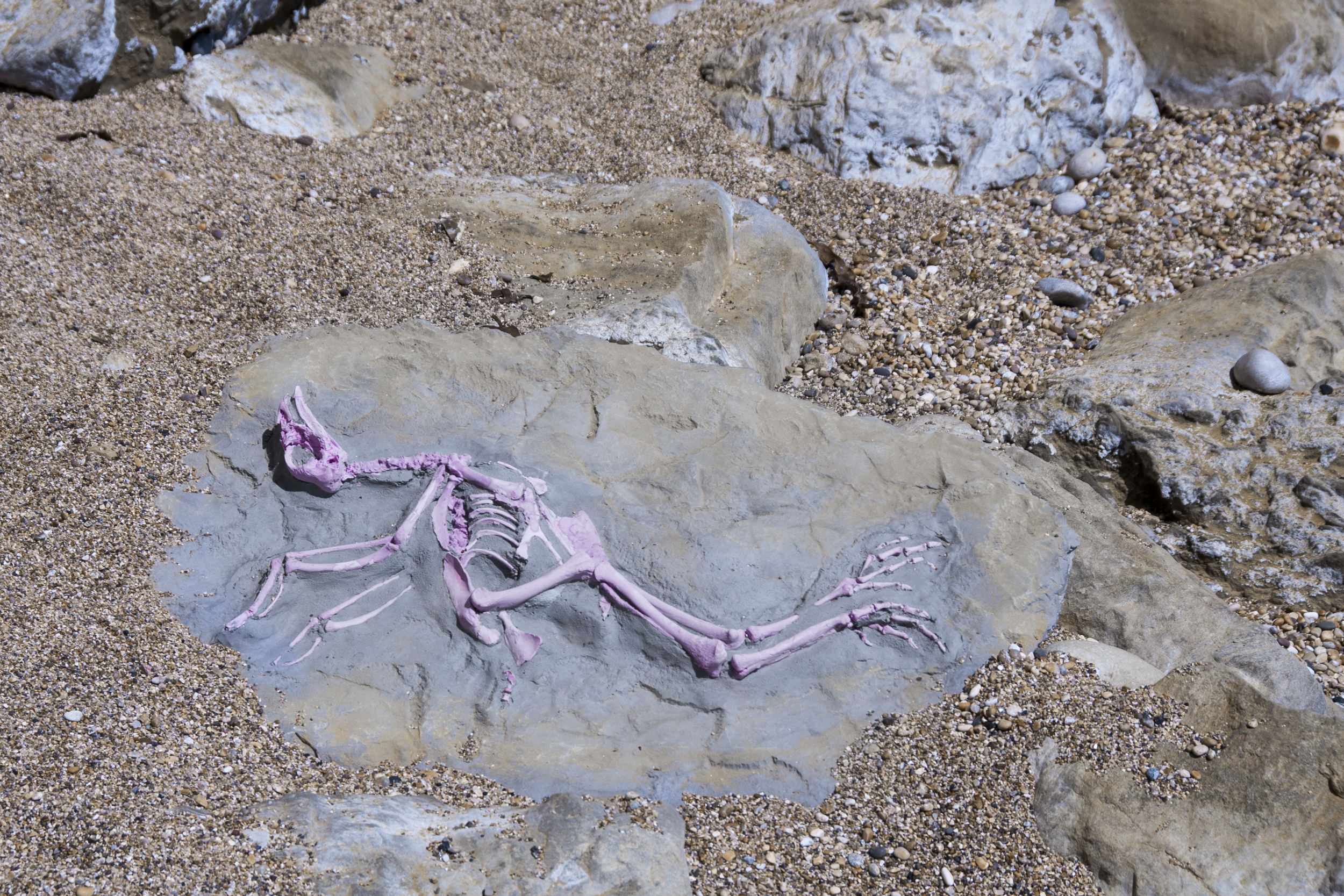Central Saint Martins
Projects | 2017
Quantworm Mine
Liv Bargman and Nina Cutler
Quantworm Industries is a nanotech wormery housed on former coal mining sites in South Wales that utilizes the earthworm’s natural ability to bio-remediate contaminated soil and bio-synthesize nanoparticles called quantum dots (QDs) from heavy metals.

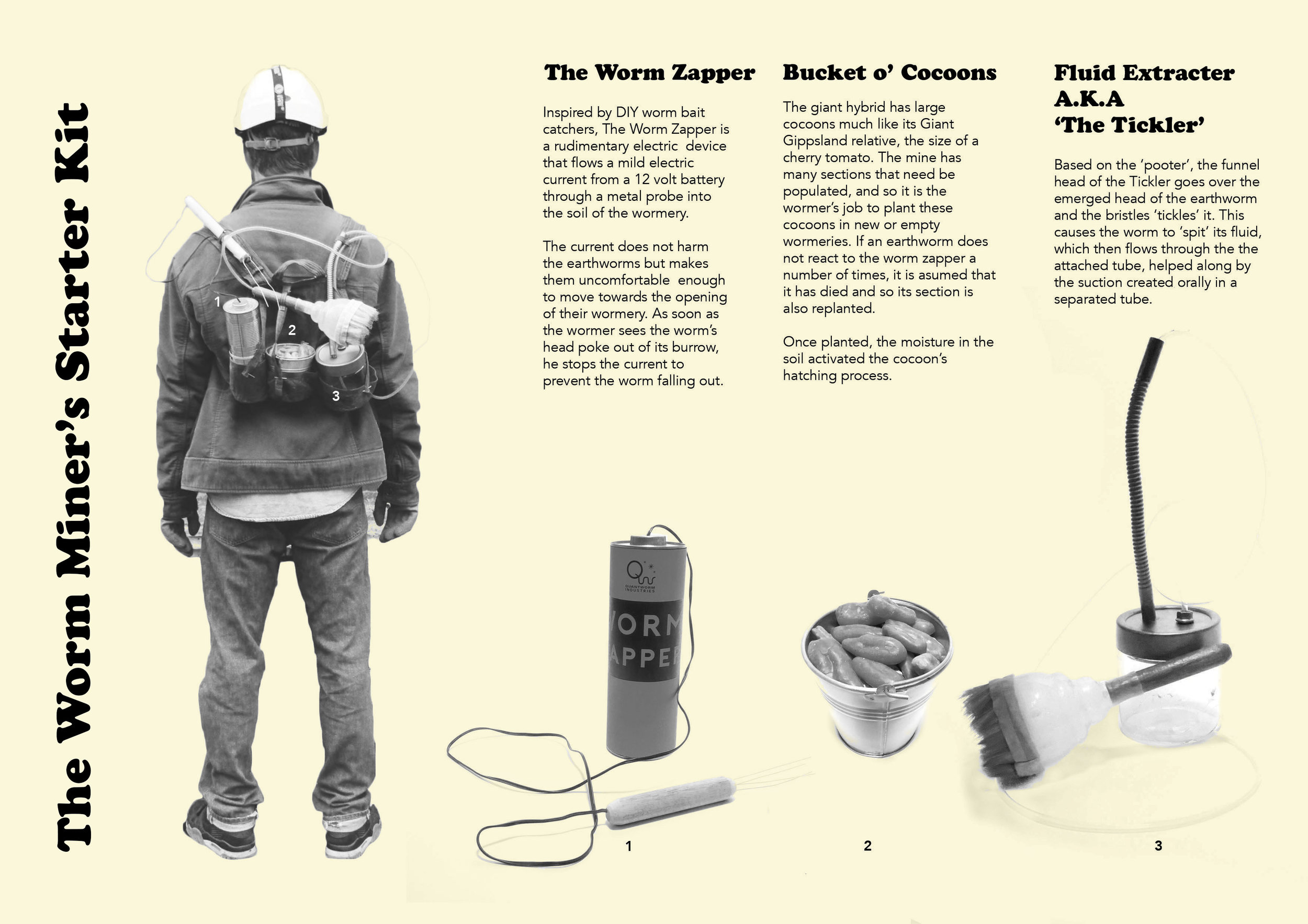

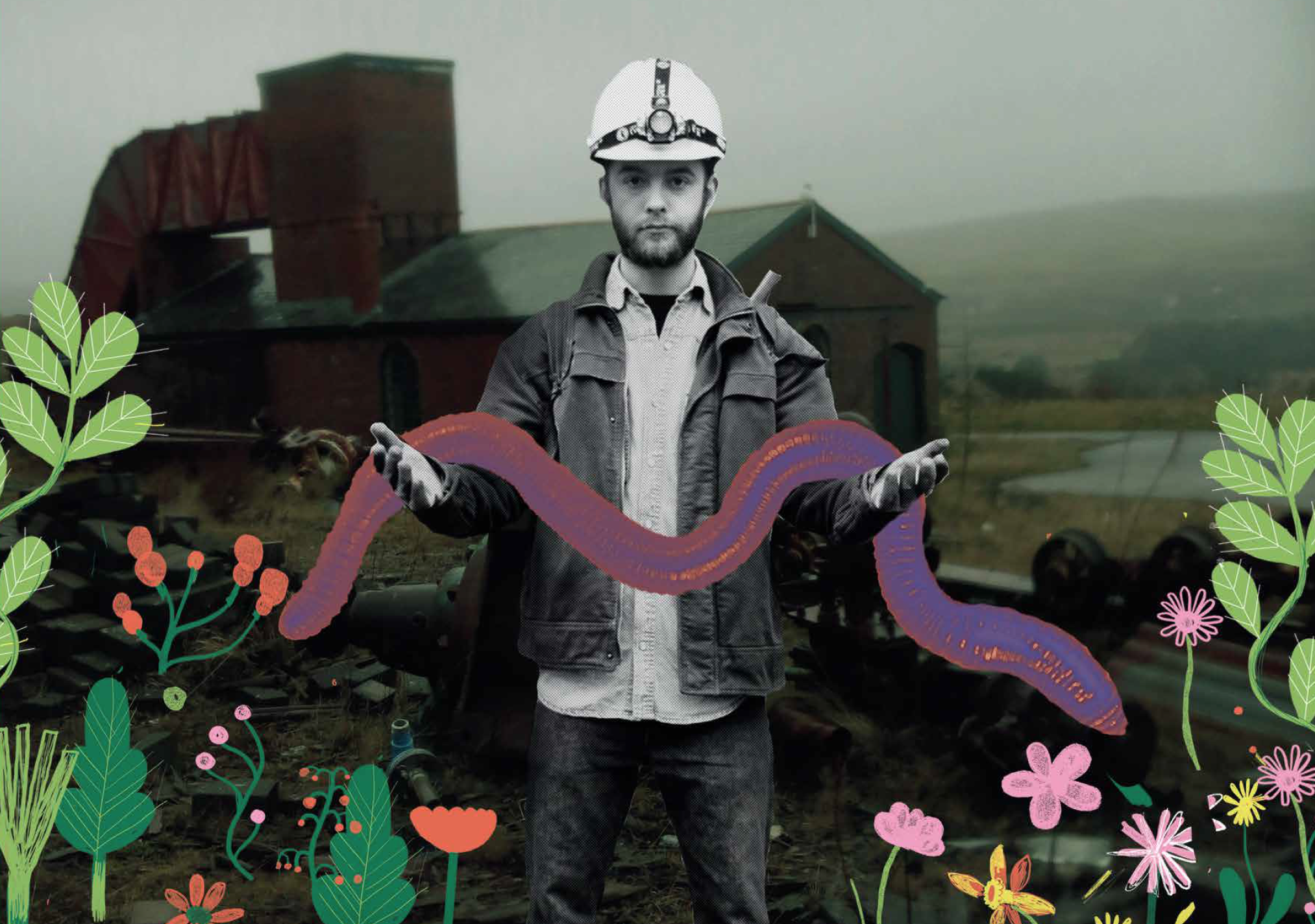

Pink Chicken Project
Leo Fidjeland & Linnea Våglund
Human actions have altered the Earth so profoundly that we have entered a new geological epoch - the Anthropocene. The project suggests genetically modifying a chicken with pink bones and feathers using a gene from the insect cochineal to produce a pigment that will be fossilized when combined with the calcium of the bone. By changing the color of chickens to pink, this project rejects the current violence inflicted upon the non-human world and poses questions of the impact and power of synthetic biology.
Learn more at https://pinkchickenproject.com/
Instructor
Advisor
Carole Collet
Carole Collet has dedicated her career to developing a new vision for design, and pioneered the discipline of Textile Futures at Central Saint Martins fifteen years ago. She is now a full-time Professor and Director of the Design & Living Systems Lab at Central Saint Martins. Her research focuses on exploring the intersection of biology and design to develop speculative and disruptive sustainable design proposals. Collet operates within a long-term framework and her research targets the year 2050 and beyond. By anticipating future key socio-economic factors and technological timelines, she aims at impacting today’s design directions so as to enable a more resilient and sustainable future. Collet’s ambition is to elevate the status of design to become a powerful tool that contributes to developing innovative paths to achieve the ‘one planet lifestyle’.
Dr. Tom Ellis
Dr. Tom Ellis started his career in synthetic biology working under the supervision of Jim Collins in one of the founding groups in the field at Boston University. Before joining Imperial College London, Tom worked at the Institute of Biotechnology at the University of Cambridge. He has a PhD in pharmacology from the University of Cambridge.





